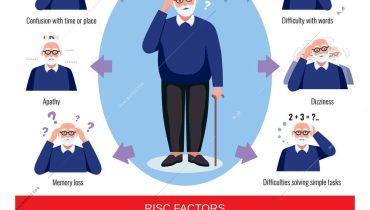As we age, maintaining good nutrition becomes increasingly important to support overall health and wellbeing. Proper nutrition can help older adults manage chronic conditions, maintain a healthy weight, and stay energetic and independent. This article provides practical tips and insights into the essential aspects of nutrition for older adults, ensuring they receive the nutrients necessary for a healthy, active life.
Understanding Nutritional Needs
Older adults have unique nutritional needs due to changes in their bodies, including a slower metabolism, decreased muscle mass, and potential nutrient absorption issues. These changes can lead to an increased need for certain vitamins and minerals, while also requiring adjustments in caloric intake to avoid weight gain.
Key Nutrients for Older Adults
1. Protein
Protein is vital for maintaining muscle mass, repairing tissues, and supporting the immune system. As muscle mass naturally decreases with age, older adults need to ensure they are getting enough protein in their diet. Good sources of protein include lean meats, poultry, fish, eggs, dairy products, beans, lentils, and nuts.
2. Calcium and Vitamin D
Calcium and vitamin D are essential for bone health, helping to prevent osteoporosis and fractures. Older adults often need more calcium and vitamin D than younger people. Dairy products, leafy green vegetables, and fortified foods are excellent sources of calcium. Vitamin D can be obtained from exposure to sunlight, fortified foods, and supplements if necessary.
3. Fiber
A high-fiber diet aids digestion and can help prevent constipation, a common issue among older adults. Fiber also plays a role in regulating blood sugar levels and lowering cholesterol. Whole grains, fruits, vegetables, legumes, and nuts are great sources of dietary fiber.
4. Vitamin B12
Vitamin B12 is important for nerve function and the production of DNA and red blood cells. As people age, their ability to absorb vitamin B12 decreases. Sources of B12 include meat, fish, poultry, eggs, and fortified cereals. Supplements may be necessary for those who have difficulty absorbing this vitamin from food.
5. Omega-3 Fatty Acids
Omega-3 fatty acids are beneficial for heart health and cognitive function. They can help reduce inflammation and lower the risk of chronic diseases such as heart disease. Fatty fish like salmon, mackerel, and sardines, as well as flaxseeds, chia seeds, and walnuts, are rich in omega-3s.
Healthy Eating Tips for Older Adults
1. Balanced Diet
A balanced diet that includes a variety of foods from all food groups is essential. This ensures that older adults receive a wide range of nutrients necessary for good health. Emphasize fruits, vegetables, whole grains, lean proteins, and healthy fats.
2. Hydration
Staying hydrated is crucial, as older adults may not feel as thirsty as they did when they were younger. Drinking enough water helps maintain body functions and can prevent urinary tract infections and constipation. Aim for at least eight glasses of water a day, and consume fluids like herbal teas, milk, and soups.
3. Smaller, Frequent Meals
Eating smaller, more frequent meals can help manage appetite and maintain energy levels throughout the day. This approach can also help with digestive issues that some older adults experience.
4. Limit Sugar and Salt
Reducing the intake of added sugars and salt is important for managing weight and blood pressure. Opt for fresh, whole foods over processed foods, which often contain high levels of these additives. Use herbs and spices to flavor foods instead of salt.
5. Monitor Portion Sizes
With a slower metabolism, older adults need fewer calories, so it’s important to monitor portion sizes to avoid overeating. Using smaller plates and being mindful of serving sizes can help control calorie intake.
Addressing Common Challenges
1. Appetite Changes
Loss of appetite is common among older adults due to various factors, including medication side effects and changes in taste and smell. To combat this, focus on nutrient-dense foods and try to make meals more appealing with varied textures and flavors.
2. Dental Issues
Dental problems can make chewing difficult, leading to a limited diet. Soft foods like yogurt, smoothies, cooked vegetables, and ground meats can be easier to consume while still providing necessary nutrients.
3. Cooking for One
For those who live alone, cooking can sometimes feel like a chore. Batch cooking and freezing portions can make meal preparation easier. Additionally, joining community meal programs can provide both nutrition and social interaction.
The Role of Supplements
While it’s best to get nutrients from food, supplements can be helpful for those who have difficulty meeting their nutritional needs through diet alone. Common supplements for older adults include calcium, vitamin D, vitamin B12, and omega-3 fatty acids. It’s important to consult with a healthcare provider before starting any new supplements.
Nutrition plays a crucial role in healthy aging, helping to manage chronic conditions, maintain a healthy weight, and promote overall well-being. By focusing on a balanced diet rich in essential nutrients, staying hydrated, and addressing common dietary challenges, older adults can enjoy a healthier, more active life. Simple dietary adjustments and mindful eating habits can make a significant difference in maintaining health and quality of life as we age.


















